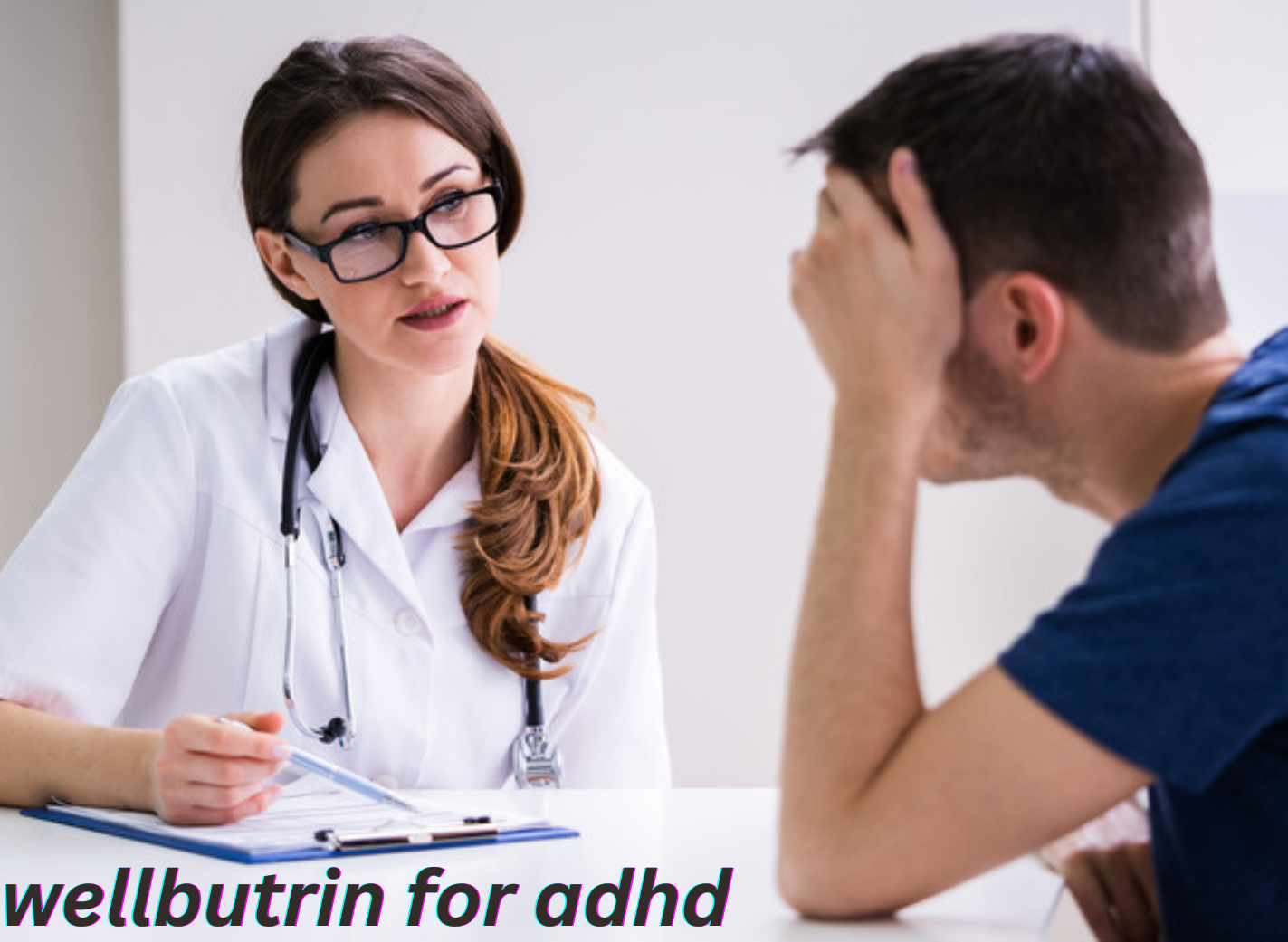Attention Deficit Hyperactivity Disorder (ADHD) is a condition that affects millions of individuals worldwide, characterized by persistent patterns of inattention, impulsivity, and hyperactivity. Traditionally managed with stimulant wellbutrin for adhd medications like Adderall and Ritalin, ADHD treatment has expanded as medical research uncovers new therapeutic options. One such alternative that’s gaining popularity is Wellbutrin (bupropion).
Wellbutrin, originally designed and approved as an antidepressant and smoking cessation aid, has shown promising results in addressing core symptoms of ADHD. While it’s not FDA-approved for ADHD specifically, many healthcare providers are prescribing it “off-label” based on growing evidence and patient success stories. This article explores how Wellbutrin might be wellbutrin for adhd an effective tool in managing ADHD symptoms, offering a fresh perspective on this non-stimulant alternative.
Understanding ADHD Symptoms and Challenges
ADHD manifests through various symptoms that can differ significantly between individuals. Inattention may present as a constant struggle to stay organized, follow through with tasks, or even remember daily responsibilities. Hyperactivity often leads to restlessness, excessive talking, and an inability to sit still, while impulsivity can result in hasty decisions without considering consequences.
The challenges of living with ADHD extend beyond the classroom or office. Relationships, self-esteem, and mental health are often impacted, as individuals may feel frustrated with their inability to meet societal expectations. Traditionally, treatment involves stimulant medications that work by boosting levels of dopamine and norepinephrine in the brain. However, not every wellbutrin for adhd patient responds well to stimulants, and side effects such as increased anxiety, appetite suppression, or even dependency concerns prompt many to seek alternatives like Wellbutrin.
What is wellbutrin for adhd Mechanism and Primary Uses
Wellbutrin, known generically as bupropion, was first approved by the FDA in the 1980s as an antidepressant. It is commonly used under brand names such as Wellbutrin SR (sustained release) and Wellbutrin XL (extended release). Wellbutrin primarily functions by inhibiting the reuptake of dopamine and norepinephrine, two neurotransmitters essential for mood regulation and focus.
Unlike traditional selective serotonin reuptake inhibitors (SSRIs), Wellbutrin’s unique mechanism allows it to energize rather than sedate users, making it especially attractive for people with depressive symptoms marked by lethargy. Because dopamine and norepinephrine also play a critical role in attention and impulse control—key problem areas in ADHD—medical professionals began exploring bupropion’s effectiveness for this disorder. The major difference between Wellbutrin and classic stimulant ADHD medications lies in its non-stimulant nature, reducing the risk of addiction and often being better tolerated by those who experience anxiety or substance abuse issues.
Wellbutrin for ADHD How It Helps
Scientific studies and clinical observations have highlighted that Wellbutrin can be particularly effective in treating ADHD symptoms, especially in adults. Bupropion enhances the brain’s availability of dopamine and norepinephrine, much like stimulants, but without the rapid spikes and crashes. This steadier modulation of neurotransmitters helps to improve attention span, reduce impulsive behaviors, and support better emotional regulation.
Comparatively, Wellbutrin may not produce as dramatic or immediate results as traditional stimulant medications. However, it offers advantages for those who are sensitive to the side effects of stimulants or who have coexisting conditions such as depression or anxiety. Research has indicated that while stimulant medications might lead to quick symptom control, Wellbutrin provides a more gradual and sustainable improvement, often with fewer sleep disturbances and appetite issues.
Using Wellbutrin off-label means that it hasn’t been officially approved by the FDA for ADHD, but doctors can legally prescribe it when they believe it will benefit the wellbutrin for adhd patient. Many individuals who didn’t find success with stimulants or preferred a non-addictive option report substantial improvement in their focus, productivity, and emotional stability when using Wellbutrin.
Dosage wellbutrin for adhd and Treatment Expectations

When prescribed for ADHD, Wellbutrin is typically started at a lower dose to minimize side effects and allow the body to adjust. The most common starting dose is 150 mg per day, usually of the sustained-release (SR) or extended-release (XL) formulations. Depending on the individual’s response, the dosage may gradually increase to a maximum of 300–400 mg per day, divided into one or two doses.
Improvements in ADHD symptoms often take several weeks to become noticeable, with many patients reporting changes around the 3-6 week mark. It’s important for wellbutrin for adhd individuals to maintain consistent medication intake and work closely with their healthcare provider to monitor effects and adjust dosing if necessary.
Factors like age, weight, metabolic rate, and the presence of coexisting mental health conditions (such as anxiety or depression) can influence the optimal dosage. A customized approach ensures that patients receive maximum benefits with minimal side effects, underlining the importance of regular check-ins and honest communication with healthcare professionals.
Potential Side Effects and Risks
As with any medication, Wellbutrin comes with a risk of side effects. The most commonly reported ones include dry mouth, headache, nausea, increased sweating, and insomnia. Fortunately, many of these symptoms are mild and often diminish as the body adjusts to the medication over the first few weeks.
However, Wellbutrin also carries a serious but rare risk of seizures, particularly at higher doses or among individuals with a history of eating disorders or seizure conditions. Therefore, Wellbutrin is generally prescribed with caution, and dosage limits are strictly adhered wellbutrin for adhd to. Patients are encouraged to report any unusual symptoms, such as severe anxiety, rash, or manic behavior, to their doctors immediately.
Maintaining open dialogue with a prescribing physician ensures that side effects are properly managed. In some cases, timing the medication dose earlier in the day or switching formulations (e.g., from SR to XL) can alleviate bothersome symptoms like insomnia.
Who Might Benefit Most From Wellbutrin for ADHD?
Wellbutrin may be an excellent choice for individuals whose ADHD symptoms are intertwined with depression or anxiety, as it effectively treats both conditions simultaneously. It’s also a favorable option for those who have not responded well to stimulants or are wary of their potential for abuse and dependency.
Adults, particularly those diagnosed later in life, often find Wellbutrin useful in managing ADHD without the emotional “highs and lows” sometimes associated wellbutrin for adhd with stimulant medications. Adolescents may also benefit, but careful monitoring is crucial due to the slight risk of increased suicidal thoughts with antidepressant medications in young people.
However, Wellbutrin may not be the best fit for individuals with a seizure disorder, eating disorders, or those who consume large quantities of alcohol. Personalizing ADHD treatment—considering lifestyle, medical history, and individual symptoms—remains critical for finding the best therapeutic fit.
Real Patient Experiences and Case Studies
Anecdotal evidence provides a rich layer of insight into the real-world effectiveness of Wellbutrin for ADHD. Many patients describe a gradual but powerful improvement in their ability to stay focused, manage tasks, and control impulsive behavior. For some, Wellbutrin was a breakthrough after years of battling the side effects or inefficacy of traditional stimulant medications.
Adult patients frequently report feeling “more themselves” on Wellbutrin, appreciating the absence of jitteriness or emotional blunting often associated with wellbutrin for adhd other ADHD treatments. In adolescents, success stories are mixed—while some experience tremendous benefits, others find stimulants or behavioral therapy more effective.
Nonetheless, a common theme among Wellbutrin users is the value of patience. Unlike stimulants, which often act within hours, Wellbutrin requires time and consistency to reveal its full benefits, rewarding users who stay committed through the initial adjustment period.
Important Considerations Before Starting Wellbutrin
Before initiating Wellbutrin for ADHD, a comprehensive medical evaluation is essential. Physicians must review a patient’s full health history, including any past issues with seizures, eating disorders, or bipolar disorder, which could increase the risk of serious side effects.
It’s equally important to discuss lifestyle factors, such as alcohol use or existing medication regimens, which might interact with Wellbutrin. Patients should also be wellbutrin for adhd aware that Wellbutrin is most effective when integrated into a broader ADHD management plan that includes therapy, behavioral strategies, exercise, and structured routines.
By taking a holistic, personalized approach to ADHD treatment, individuals maximize their chances of achieving long-term success and improving their overall quality of life.
Conclusion
wellbutrin for adhd stands out as a promising, non-stimulant option for managing ADHD symptoms, particularly for those who struggle with stimulant side effects or have coexisting mood disorders. While it requires patience and careful medical oversight, many patients experience meaningful improvements in focus, emotional regulation, and daily functioning.
Choosing Wellbutrin for ADHD is a highly individualized decision that should be made in collaboration with a knowledgeable healthcare provider. With the right support and commitment, Wellbutrin can play a valuable role in helping individuals unlock their full potential and lead more focused, fulfilling lives.
FAQs
Is Wellbutrin officially approved wellbutrin for adhd by the FDA for treating ADHD?
No, Wellbutrin is prescribed wellbutrin for adhd off-label for ADHD, meaning it’s not FDA-approved specifically for this use but has shown effectiveness.
How long does it take for wellbutrin for adhd Wellbutrin to show results for ADHD symptoms?
Most individuals begin to wellbutrin for adhd notice improvements in ADHD symptoms after 3–6 weeks of consistent use.
Can Wellbutrin be combined wellbutrin for adhd with other ADHD medications?
In some cases, doctors may wellbutrin for adhd combine Wellbutrin with stimulants or other medications, but this must be carefully managed to avoid interactions.
Is Wellbutrin more effective wellbutrin for adhd for adults or children with ADHD?
Wellbutrin tends to show better wellbutrin for adhd results in adults; however, some adolescents may also benefit with close medical supervision.
What should I do if I experience wellbutrin for adhd side effects from Wellbutrin?
Contact your doctor immediately. wellbutrin for adhd Adjusting the dose, changing the time of administration, or switching formulations may help manage side effects.
You May Also Read: https://techbusinessus.com/sphinx-riddles/



